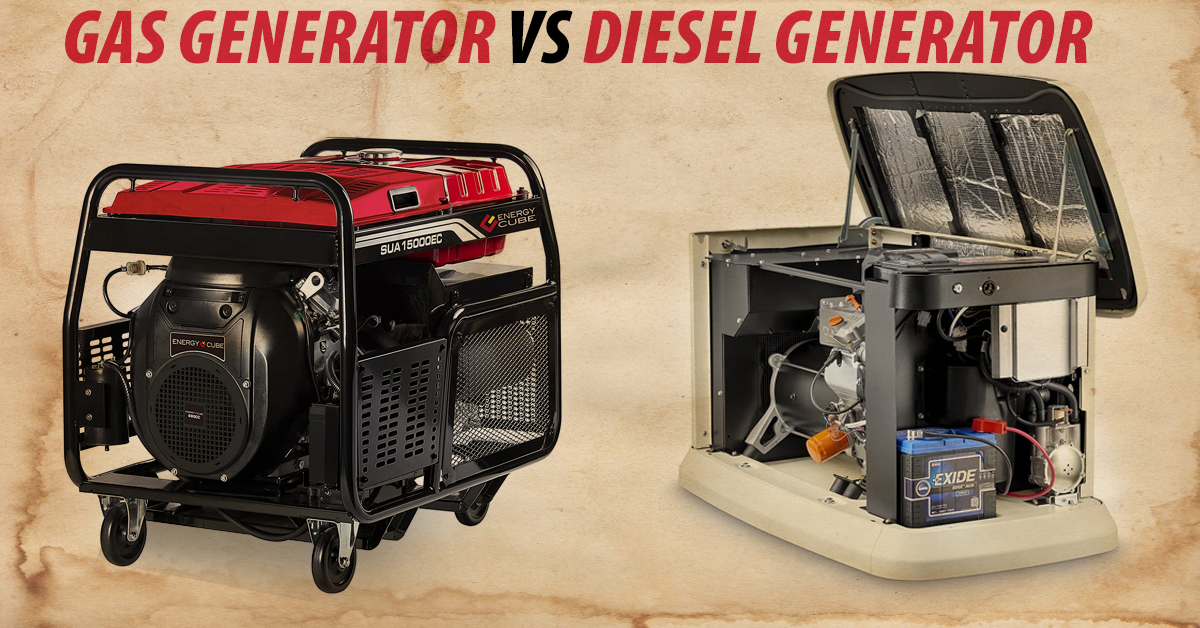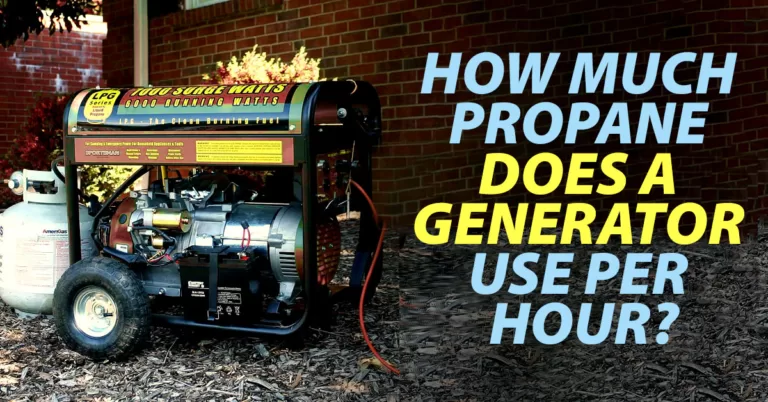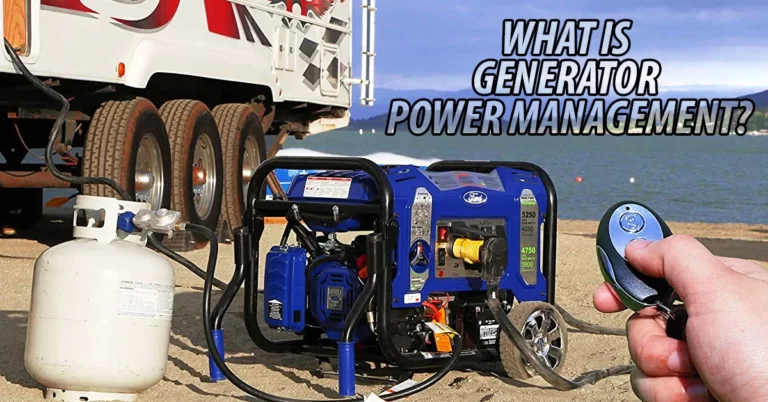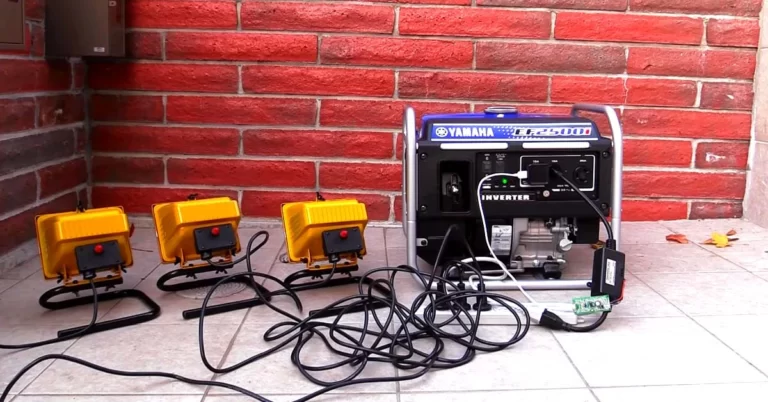WHAT IS THE DIFFERENCE BETWEEN A GAS GENERATOR VS. DIESEL GENERATOR?
Generators are important for staying productive on construction sites, in hospitals, and in data centers, among other places. They serve as a primary or standby power source, providing electricity during an outage or when grid power is unavailable. However, more than a single generator may be needed to sustain operations in the long term, which is why investing in multiple generators as backup is essential. Because there are various types of generators, it’s essential to remember that not all generators operate on gas. This article will explore the differences between gas and diesel generators, their advantages and disadvantages, and which type may best suit your needs.
What Is A Gas Generator?
A gasoline-powered generator is called a gas generator or a diesel generator. It feeds fuel and air into a carburetor, compresses the mixture, and ignites it. This causes the machine’s rotor to spin and provide the electric current that drives your equipment.
One advantage of a gas generator is its affordability, as gasoline is generally cheaper than diesel. Gas generators are also relatively portable and are typically smaller than diesel generators, making them easier to transport. Gas generators are also economical to run, which makes them a popular option for momentary uses like power disruptions.
However, gas generators do have their disadvantages. One potential issue is the carburetor, which can malfunction and require replacement. Gas generators are also less fuel-efficient than diesel generators, which consume more fuel to produce the same power. Additionally, gasoline has a shorter lifespan than diesel fuel, which means it can go bad over time and may need to be replaced more frequently.
What Is A Diesel Generator?
A diesel generator is a particular kind of generator that runs on diesel gasoline. It compresses air and injects diesel fuel into the chamber to produce heat, which triggers the fuel’s ignition. The electric current that powers your apparatus is produced by the generator and powered by that ignition.
One advantage of a diesel generator is that it requires less maintenance than a gas generator, as it doesn’t have a carburetor that can malfunction. Also, diesel generators last longer and use less fuel, making them more fuel-efficient than gas generators.
However, diesel generators do have some disadvantages. They typically have a higher upfront investment cost than gas generators, which can be a significant factor when deciding which generator to invest in. Older models of diesel generators can also create loud noises, which may not be suitable for certain environments. Lastly, diesel fuel is generally more expensive than gasoline, which can add up to higher costs over time.
Comparison Of Diesel Generators And Gasoline Generators
Generators are essential for maintaining a continuous power supply during power outages. When deciding between diesel and gasoline generators, several considerations must be considered. The key distinctions between diesel and gasoline generators will be covered in this essay.
Fuel Consumption
Unlike gasoline engines, diesel engines are renowned for their higher fuel efficiency. Diesel engines have a higher compression ratio than gasoline engines, which allows them to get more energy out of each unit of fuel. Additionally, diesel engines are built heavier than gasoline engines to withstand the higher compression ratios. As a result, the engine becomes stronger and more effective, producing greater power for longer periods.
Diesel engines also benefit from having no ignition system, which means less maintenance and tune-ups are needed. Because diesel fuel ignites by compression rather than a spark from a spark plug, an ignition system is not required.
Power Production
Due to their higher compression ratio, diesel generators operate more effectively than gasoline generators. The compression ratio of a gasoline engine runs from 8:1 to 12:1, whereas a diesel engine is between 14:1 and 25:1. Diesel engines produce more power due to their higher compression ratio.
Cold Weather Start
Because diesel engines don’t have spark plugs, starting one in cold weather might be difficult. Instead, the fuel is burned, and the air compression in the cylinder starts the ignition. Engine rpm can be increased by using a glow plug. But regardless of the weather, gasoline engines start up instantly.
Durability
Compared to gasoline generators, diesel generators require less maintenance. They don’t get as hot when running for extended periods and have fewer parts that can malfunction. Long-running gasoline generators tend to get hotter, which might hasten component wear.
Noise Level
Diesel generators are generally louder than gasoline generators, but newer models are designed to be quieter. Gasoline generators are known for their low noise level, which makes them a good option for residential areas.
Maintenance and Longevity
Compared to gasoline engines, diesel engines require less maintenance. They are, therefore, less likely to break down or become worn out. Due to their lower heat output and less corrosive exhaust, diesel engines also have a longer lifespan than gasoline engines. In other words, a diesel generator can deliver dependable backup power for many years with little maintenance.
Extended Use
Diesel engines are designed for heavy loads and extended use, making them ideal for use as backup generators. On the other hand, gasoline generators are generally built for intermittent use and are not designed to handle heavy loads for extended periods. Because of this, diesel generators are a superior option for companies, hospitals, and other institutions that frequently require dependable backup power.
Considerations For Choosing Between Diesel And Gasoline Generators
Generators have become essential in modern homes, providing backup power during unexpected power outages or when living off the grid. While diesel and gasoline generators are the most popular options, choosing the best one for your needs can be daunting. Some factors to think about while deciding between gasoline and diesel generators are covered in this article.
Power Requirements
The first consideration is the amount of power required for your home. Diesel generators are generally more powerful and can provide more energy for longer periods, making them suitable for high-power requirements. On the other hand, gasoline generators are ideal for lower power requirements, such as running a few essential appliances or powering a small cabin.
Frequency Of Use
Another important consideration when deciding between diesel and gasoline generators is how often they will be used. If you only need a backup power source sometimes, a gasoline generator is better because it needs less maintenance. But if you need to use a generator often and for a long time, a diesel generator may be more cost-effective because it needs to be refueled and maintained less often.
Cost Considerations
Regarding cost considerations, diesel generators are typically more expensive than gasoline generators. However, they can be more cost-effective in the long run due to their higher efficiency and lower fuel consumption. On the other hand, gasoline generators have a lower upfront cost but can be more expensive to run in the long term, especially for prolonged use.
Environmental Impact
The environmental impact of diesel and gasoline generators is another important consideration. Diesel generators emit more pollutants, such as nitrogen oxides and particulate matter, making them less environmentally friendly. Gasoline generators, while emitting fewer pollutants, still contribute to air pollution; therefore, alternatives like solar or wind power exist.
Safety Con If You Are Environmentally Conscious
Lastly, safety is critical when choosing between diesel and gasoline generators. Diesel is less flammable than gasoline, making diesel generators safer to store and handle. Gasoline generators, on the other hand, pose a higher fire risk due to their flammable nature. Gasoline generators should be operated and stored according to all safety guidelines and protocols.
Gasoline Vs Diesel Generators For Your Application
Regarding power generation, gasoline and diesel are the two most popular fuel options. Both offer on-demand power, low emissions, and readily available fuel sources. However, they have inherent differences that make them ideal for different applications.
Understanding the advantages and disadvantages of gasoline and diesel generators is crucial for selecting the best generator. This article will explore the different applications where gasoline and diesel generators excel.
Gasoline Generators: Suitable For Low-Load Applications And Infrequent Use
The greatest uses for gasoline generators are low-load applications and occasional use. These generators are perfect for running lights, small appliances, and other low-power equipment. They are also perfect for use in residential areas because they produce less noise and fewer emissions than diesel generators.
Gasoline generators are available in different models and features, making them versatile for various applications. They are also less expensive than diesel generators, making them affordable for homeowners and small businesses.
One of the downsides of gasoline generators is their lower fuel efficiency. They burn more fuel to produce the same amount of power as diesel generators, which can result in higher fuel costs over time. Diesel has a longer shelf life than gasoline. Hence gasoline would be preferable for long-term storage.
Diesel Generators: Heavy-Duty Tasks Requiring Significant Power
Diesel generators are best suited for heavy-duty tasks that require significant power. These generators are workhorses that can withstand bigger loads for extended periods compared to gasoline generators. They are ideal for powering large commercial or industrial facilities, construction sites, and remote locations.
Compared to gasoline engines, diesel engines offer superior fuel efficiency. They only burn a little fuel to produce power, thanks to their high compression rate. Because of this, diesel generators have become more affordable over time, especially for businesses that depend on electricity generation.
Diesel generators are also safer to store than gasoline generators. Diesel can be stored for extended periods without degrading because it is less explosive and has a longer shelf life. Due to this, diesel generators make the best standby generators during crises.
FAQs
-
What is the difference between a diesel and a gasoline generator?
The primary difference between diesel and gasoline generators is the fuel they use. The fuel used in diesel generators is diesel, while the fuel used in gasoline generators is gasoline.
-
Which type of generator is more efficient, diesel or gasoline?
Diesel generators are generally more efficient than gasoline generators. Diesel fuel has a higher energy density, which means it can produce more power per gallon than gasoline.
-
Are diesel generators more expensive than gasoline generators?
In general, diesel generators are more expensive than gasoline generators. However, they can be more cost-effective in the long run due to their higher efficiency and lower fuel consumption.
-
Which type of generator is better for home use, diesel or gasoline?
The choice between diesel and gasoline generators for home use depends on some things, such as the amount of power needed, how often it will be used, how much it will cost, how it will affect the environment, and how safe it needs to be. Ultimately, your particular needs and circumstances will determine your best choice.
-
Are diesel generators louder than gasoline generators?
Yes, diesel generators are typically louder than gasoline generators. Depending on the model and brand of the generator, this may vary.
-
Are diesel generators safer than gasoline generators?
Diesel generators are generally considered safer than gasoline generators because diesel fuel is less flammable than gasoline. However, both generators can present safety risks if not used and stored correctly.
-
Which type of generator is more environmentally friendly, diesel or gasoline?
Neither diesel nor gasoline generators are considered environmentally friendly due to their emissions of pollutants such as nitrogen oxides and particulate matter. However, diesel generators typically emit more pollutants than gasoline generators.
Conclusion
The choice between diesel and gasoline generators for home use ultimately depends on several factors. The primary considerations include power requirements, frequency of use, cost considerations, environmental impact, and safety concerns. Diesel generators are generally more powerful and efficient, making them suitable for high-power requirements and prolonged use. However, they are more expensive upfront and emit more pollutants than gasoline generators. On the other hand, gasoline generators are cheaper upfront and better suited for lower power requirements and occasional use. They emit fewer pollutants but can be more expensive to run long-term. The best option will ultimately depend on your unique demands and circumstances. Finding the greatest generator that matches your needs requires extensive research and comparison of many possibilities.







